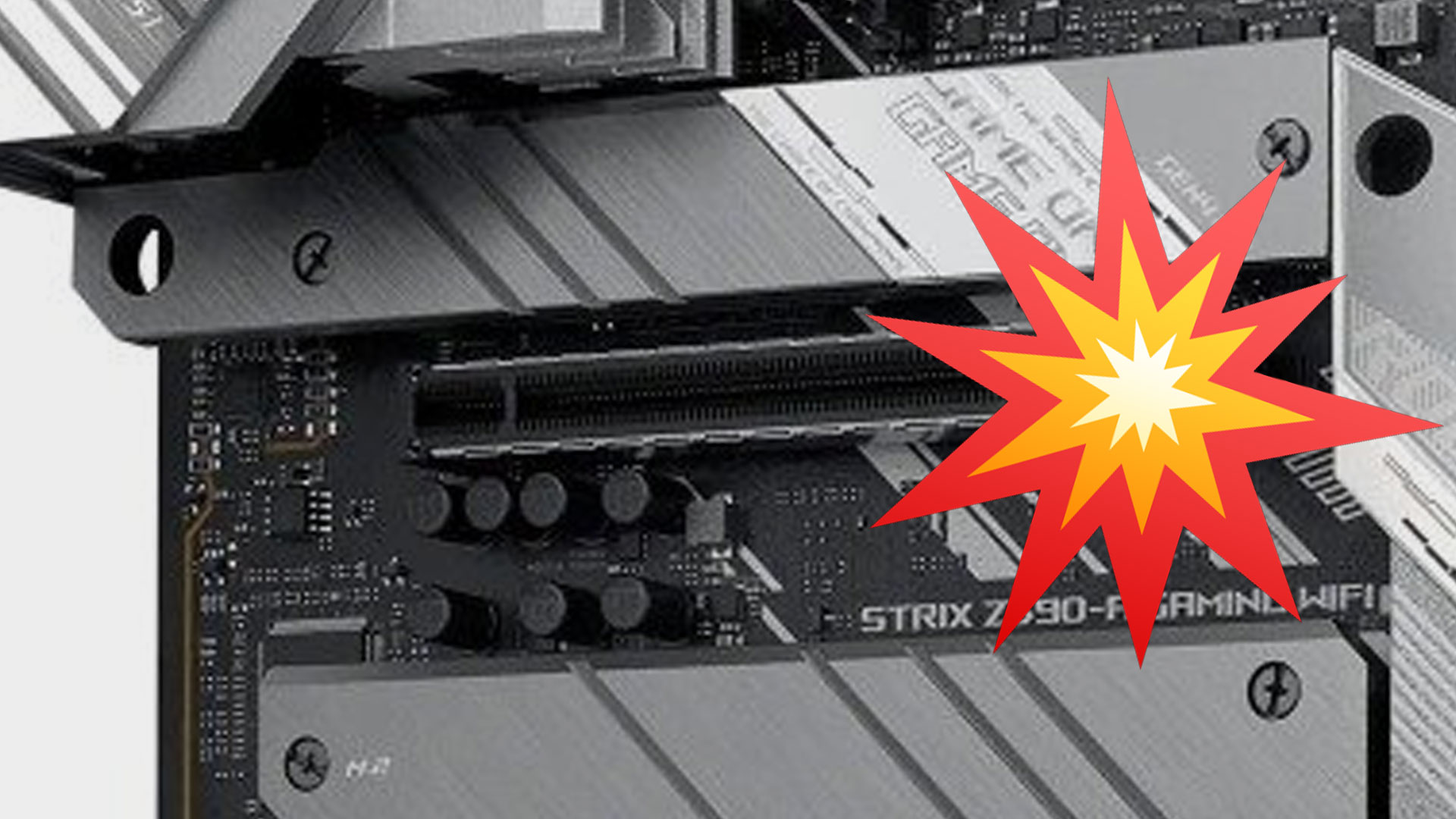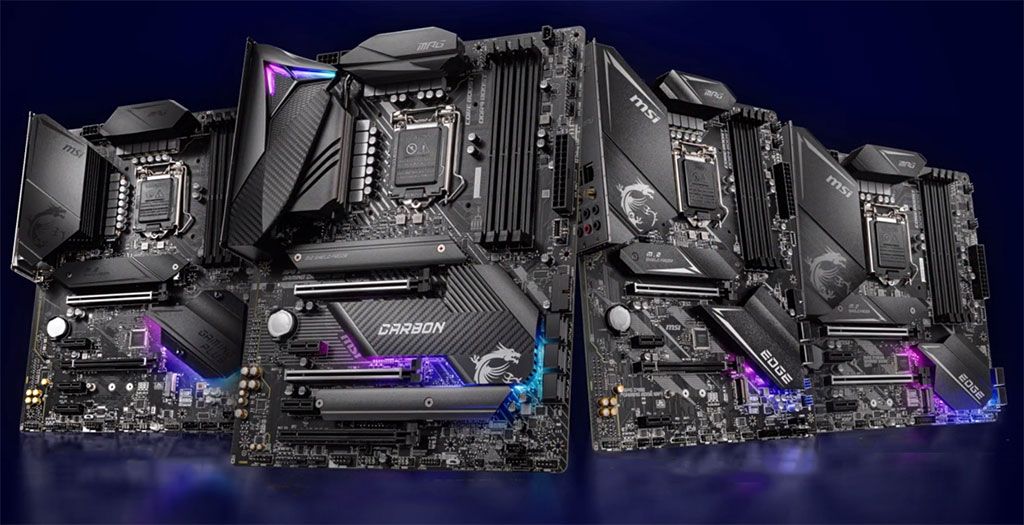This PCIe Q-Release button for Asus Alder Lake motherboards is a godsend
Coming to ROG Maximus and Strix motherboards, it'll save a lot of faff when upgrading your GPU.

Coming to Asus' next generation of ROG Strix (and likely Maximus) Z690 motherboards is a new feature that'll make swapping your graphics card much easier. Goodbye PC building stresses, hello handy little PCIe release buttons.
We're standing at the edge of the Alder Lake, which means the next generation of motherboards are on the way, along with a rejuvenation of the PC building hobby as a whole—I can feel it.
To make the whole process smoother, it looks like Asus is popping a nice little surprise onto the next generation of motherboard designs, to make our jobs (and your hobby) that tiny bit less stressful: a PCIe slot 'Q-Release' button.
👆 pic.twitter.com/FXPxYj3MyoOctober 26, 2021
This was brought to our attention via a Twitter post from momomo_us, which explains it will unlock "the first PCIe slot's security latch with one tap." That means the true x16 slot, or the Gen5 slot that your GPU should be jammed into.
The feature will help us PC builders out by "greatly simplifying the process of detaching a PCIe card from the motherboard." Of course, everything's simpler with buttons.

Best gaming motherboard: the best boards around
Best AMD motherboard: your new Ryzen's new home
These nifty little buttons may only be appearing only on Asus Z690 motherboards, according to VideoCardz; it doesn't look like they're coming to Prime, Tuf, or ProArt boards. Mini-ITX and Micro-ATX Strix motherboards look to be off the table, too.
Still, this will surely reduce the amount of Reddit posts from people getting GPUs stuck in their PCIe slots, thanks to that awkward latch feature getting broken or being rendered totally inaccessible.
Keep up to date with the most important stories and the best deals, as picked by the PC Gamer team.
Lets just hope other motherboard manufacturers catch on fast.

Screw sports, Katie would rather watch Intel, AMD and Nvidia go at it. Having been obsessed with computers and graphics for three long decades, she took Game Art and Design up to Masters level at uni, and has been rambling about games, tech and science—rather sarcastically—for four years since. She can be found admiring technological advancements, scrambling for scintillating Raspberry Pi projects, preaching cybersecurity awareness, sighing over semiconductors, and gawping at the latest GPU upgrades. Right now she's waiting patiently for her chance to upload her consciousness into the cloud.

